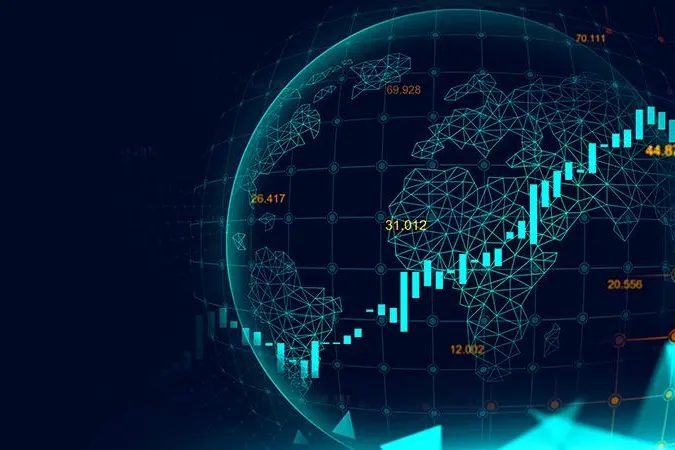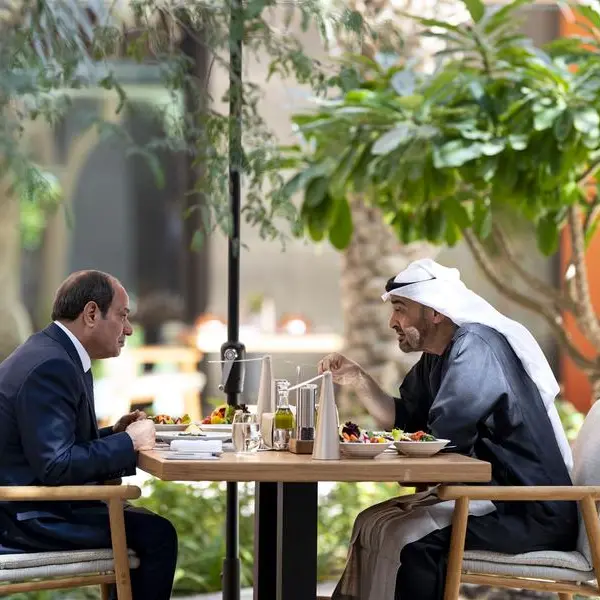PHOTO
World governments urgently need to rethink how they grow their economies, warned experts at the World Economic Forum’s Annual Meeting of the Global Future Councils 2023 (GFC23), being held this week in Dubai.
During a session focused on the current state of economic growth, Masood Ahmed, President for the Center for Global Development in the US asserted that many communities are being left behind in this current climate.
“We need to rethink how we grow, and we need to rethink how we distribute the benefits of growth,” Ahmed stated. “We don't spread the benefits of economic activity across the majority of people.
“We need to change the nature of growth, but not give up on the concept of economic activity, because that would be betraying the needs of the majority of the world today.”
Panellists agreed that while anchoring prosperity to economic growth has been a consistent aspect of the modern world, the complexity of global challenges are now starting to question these deeply ingrained assumptions.
They also agreed that the topic of economic growth hasn’t been this “potent” since the 1970s and 1980s, during which the United Nations developed the 1987 Brundtland Commission, introducing sustainable development.
So what kind of growth should world governments be aiming for?
For Kumi Kitamori, Deputy Director of the Environment Directorate at Organisation for Economic Cooperation and Development (OECD), the focus should be on quality over quantity.
“We still need growth, but it’s the quality of growth that matters,” she said. “It has to be green, and it has to be inclusive. Today, these two issues are very urgent. We have a climate crisis and so need to accelerate action in a massive way, then scale up action. But then there’s also a little bit of tension with equity, because there’s a lot of resistance.”
Referencing a 2022 report by the Intergovernmental Panel on Climate Change (IPCC), Kitamori added that up to a third of emission reductions needed by 2050 need to actually come from individuals themselves.
DIVERSIFYING BEYOND PHYSICAL CAPITAL
For Alex Edmans, Professor of Finance at London Business School, governments need to think about growth not just as physical capital – commonly measured as GDP growth – but also other means.
“Growth is critical to increase social welfare and contribute to human flourishing, but we need to recognise that growth can be on many different types of capital,” he said. “So, you can have growth in physical capital, but there’s also growth in human capital. There’s also growth in natural capital, such as preservation and restoration. And finally, growth in financial capital, allowing people to save for the future, which needs to be equitable.”
Providing an example of human capital, Edmans explained: “If we are thinking about shutting down a plant, what will happen to the people afterwards? Well, if you are a company and not retraining people before they end up leaving, then these are the human version of stranded assets.”
RETHINKING ECONOMIES
Given his position as a marine geologist specialist, the session’s fourth panellist affirmed that more needs to be done to put the planet first.
“I completely agree that we need to find a new way to measure the performance of every single economy and GDP; inequality is not new, and that’s because we’re not really solving the problem,” said Sandor Mulsow, Tenure Professor of Marine Geology at the Austral University of Chile. “We are still stuck in the ‘take, make, sell, and waste’ [way of life] that’s our economic system right now. We need to think radically and differently. How do we take this pressure on this planet right now?”
Calling for a reduction in the scale of growth and thinking more about resources, he said: “I would love to see a society where we work for only four hours a day – we take away 50% of the pressure on every single natural resource on this planet.”
Mulsow went on to point out the contrast in activity between the Northern and Southern hemispheres.
“I would like to see solidarity. If we were to eliminate all the species from the southern hemisphere, the reduction in CO2 emissions would be zero. But if we eliminate all species from the northern hemisphere, we will reduce CO2 to 200 ppm. We are currently at 400 ppm… We are tied by greed and that greed needs to disappear.”
Ahmed acknowledged that while Muslow’s vision is “how we should live,” he added that it would be impossible with the current lack of equity around the world.
“We have to work on two fronts. Today, we have to find ways in which we can improve the human condition for people who do not have an acceptable human condition and do so in a way that minimises damage to the planet, while changing the behaviour of those who are consuming well above a sustainable level for the planet on a whole.
“If the rich countries – which are consuming much more than their share of acceptable global resources – are not able to make the internal changes, no amount of holding back progress in the poorest countries is going to make an impact,” Ahmed concluded.
(Writing by Rachel McArthur; editing by Seban Scaria) seban.scaria@lseg.com





















